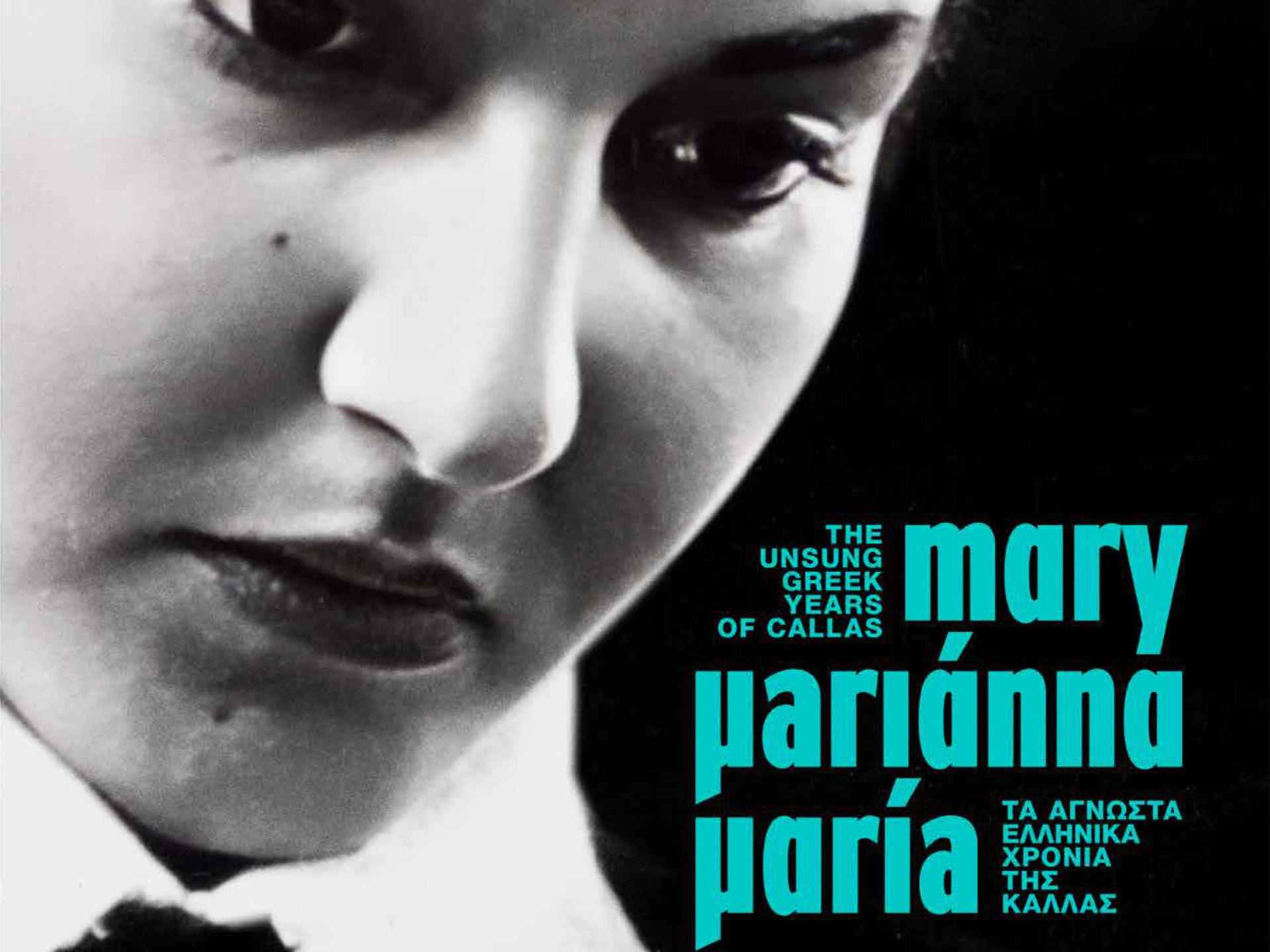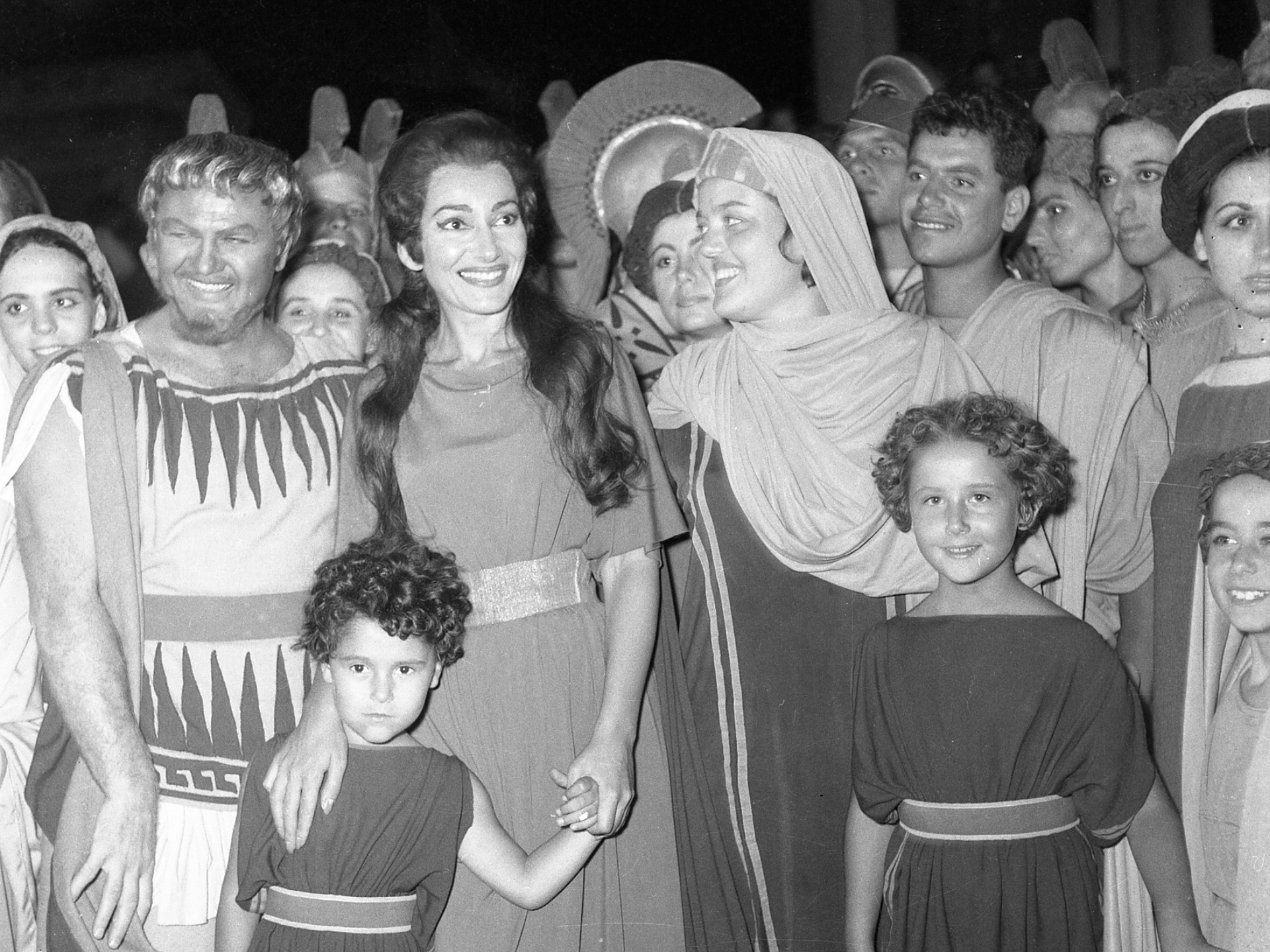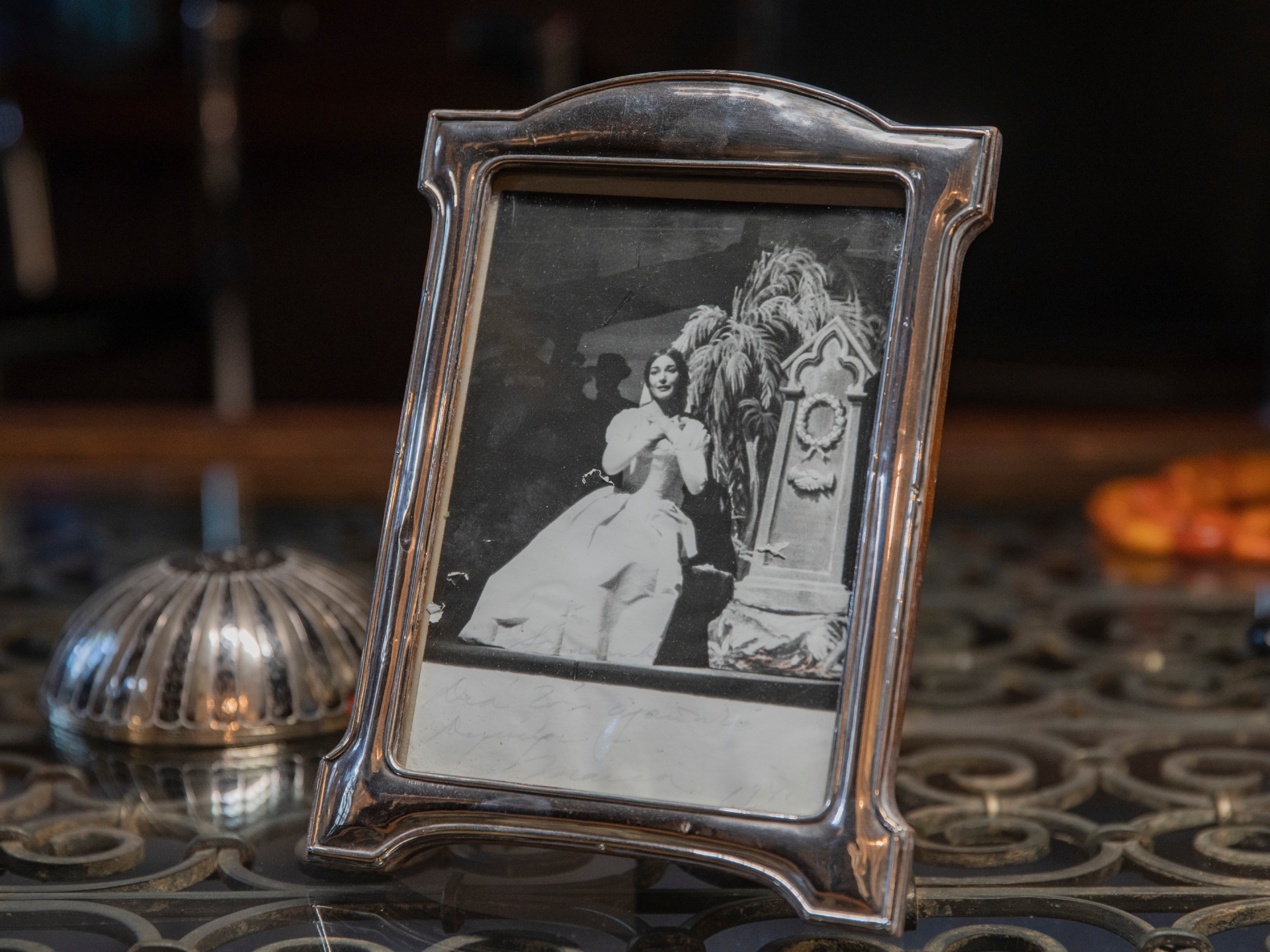




Mary, Marianna, Maria:
FOUGARO ARTCENTER, in partnership with the Greek National Opera, on Saturday 23 & Sunday 24 November at 6 pm, is hosting two screenings of the documentary by Vasilis Louras “Mary, Marianna, Maria: The Unsung Greek Years of Callas”, with free admission at the FOUGARO GALLERY. The documentary was released in 2023 to mark the centenary of Maria Callas's birth and focuses on the lesser-known Greek years of the greatest opera artist of the 20th century. Directed by Michalis Asthenidis and Vasilis Louras, the documentary was co-produced by the Greek National Opera and Escape.
A recording of the recital she gave at the Odeon of Herodes Atticus in 1957 forms the backbone of the documentary’s music script, supplemented by other breath-taking studio and live recordings of Callas. The documentary also features never-before-released recordings of Callas (August 1964, Lefkada island and August 1977, Paris apartment). The documentary seeks to shed light on the years in which Callas came of age as a woman and as an artist –that is, in Athens during the Second World War– but also on the years after 1957 when the diva, by then renowned internationally, reconnected with Greece.
On the occasion of the screenings, FOUGARO GALLERY also presents unpublished photographs and the program of the historic 1961 performance of Medea produced by the Greek National Opera at Epidaurus, starring Maria Callas. The exhibits are sourced from the archive of Efi Strousa, art critic and curator, courtesy of Angelena Charissiadis.
More about the documentary
Her foremost artistic achievements and little-known debuts, the figures who so influenced her, and the major landmarks in her development as an artist, but also the prevailing social and political circumstances in Greece during World War II, the Greek Civil War milieu of the 1940s and ’50s, and the unjust attacks she endured – these are the key narrative threads used to tell the story of the troubled, novel-like life of Callas, who always walked the line between tragedy and triumph. Making use of rare archival documentation, never-before-released recordings, interviews, and other audio materials, this documentary seeks to tell the story of Callas’ early years – the story of a triumph achieved through strength of character and talent, hard work and dedication, a story that saw her defy every difficulty and all the abusive behaviour she faced.
While the 14-year-old Kalogeropoulou, on arriving in Athens back in 1937, would first introduce herself to her fellow students at the Greek National Conservatoire as Mary, she would go on to sign her first contract with the Greek National Opera in 1940 as Marianna. In March 1945, a little before leaving Athens for New York, she would make a concert appearance as Mary Callas – an artist ready to spread her wings and soar into the heights of a great career that would bring her fame across the entire globe as Maria Callas. When she next returned to Athens, in 1957 as a fully-fledged star of the opera world, she would appear at the Odeon of Herodes Atticus as Maria Meneghini Callas.
New interviews were conducted specially for the purposes of this documentary, with such figures as John C. Bastias, son of the GNO’s Founding Director; Giorgos Koumendakis, Artistic Director of the GNO; the opera artist Aris Christofellis; Konstantinos Pylarinos, President of the Maria Callas Scholarship Programme; Stephan Hörner, son of the maestro Hans Hörner, who conducted Callas in a 1944 production of Fidelio; mezzo-soprano Kiki Morfoniou, who took part in the performances Callas gave of productions of Norma and Medea at the Ancient Theatre of Epidaurus; Hara Kalomiri, Head of the Greek National Conservatoire; Stella Kourmpana, head of the Athens Conservatoire Archives; the musicologist Sofia Kontossi, expert on the Leonidas Zoras Archive; Philippos Tsalahouris, expert on Manolis Kalomiris; and others.
In addition, beyond archival interviews with Callas herself, the documentary also draws on existing interviews with her Athens Conservatoire teacher Elvira de Hidalgo; her colleagues Zoe Vlachopoulos, Marika Papadopoulou, and Arda Mandikian; the author Nikos Petsalis-Diomidis; the conductor Leonidas Zoras; Callas’ friend, the British soldier Ray Morgan; and others. Last but not least, the documentary features invaluable testimony left by people who worked with Callas during the Axis occupation of Greece, including: the Founding Director of the GNO, Costis Bastias; the director of her first Tosca performance, Dino Yannopoulos; former GNO Chorus mistress Elli Nikolaidi; the pianist (co-répétitrice) Irma Kolassi; fellow singers Spyros Saligaros and Mitsa Kourachani; and others.
While the trauma of the war would trail Callas throughout her life, it is nevertheless quite clear that the foundations for her later artistic achievements were laid during those difficult years she spent in Athens. And it is not just that she was trained in the city by Elvira de Hidalgo – it is also that she gained invaluable on-stage and performance experience through her appearances at the Greek National Opera. And, on a more personal level, it was during those eight years that she tapped the inner strength she needed to transform every difficulty, every challenge, and every onslaught into the resources and grit she would tap later in life.
Documentary credits
Concept, research, script Vasilis Louras
Direction Michalis Asthenidis, Vasilis Louras
Production Stella Angeletou
Research consultants Aris Christofellis, Sophia Kompotiati
Documentary sponsorship support
The Ulysses Kyriacopoulos & Florica Kyriacopoulos Family
Documentary sponsor
PPC (Public Power Corporation)
GNO lead donor & Documentary sponsor
Stavros Niarchos Foundation (SNF)

